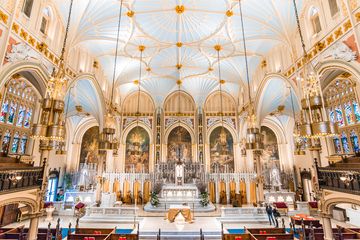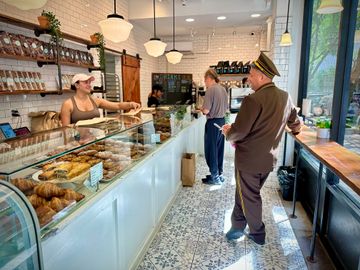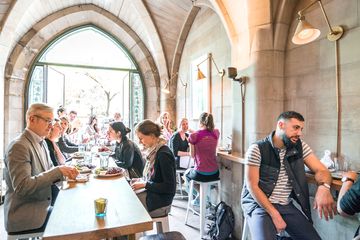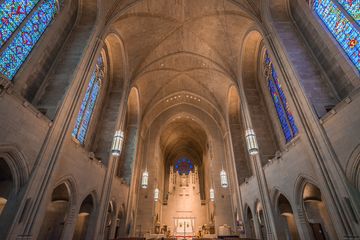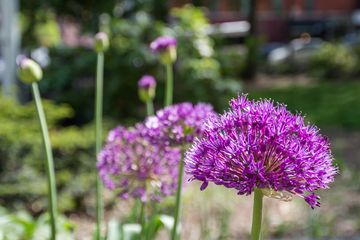The story of the Church of the Heavenly Rest begins in 1865 when Dr. Robert Shaw Howland led the first services on 42nd Street. In 1868, the congregation was officially named the Church of the Heavenly Rest and construction began on a new church on Fifth Avenue near Grand Central Station. By the early twentieth century, the area had grown into a bustling business district and the congregation started looking to make the move to a more residential neighborhood where they would not have to compete with as many midtown places of worship. In 1924, Andrew Carnegie’s widow sold the church a plot of land across the street from her new home (now the Cooper Hewitt Museum). This is where Heavenly Rest built its now-landmarked sanctuary. I learned from Marion Morey, a parishioner who volunteers to greet visitors to the Episcopalian church (“We’re like the Catholics, but different, ” Marion tells each person who enters), that it is thanks to Mrs. Carnegie that the landmarked building looks the way it does. “She didn’t want the church to build a steeple, because it would cast a shadow on her lawn, ” she said with an amused smirk. In addition to the lack of steeple, the church is unique in that it embraced the Art Deco style that dominated skyscrapers at the time it was built. Marion pointed out that the sanctuary uses both Gothic and Art Deco designs in a seamless blend of aesthetics. She is especially fond of the cross behind the altar, which appears flush with the background at the bottom, but rises up and out towards the viewer near the top. “It means a lot to me, ” she said, elaborating on the themes of resurrection and rebirth that the church embraces. Marion also spoke to me about the fleur de lis designs in the chapel and the International School that is part of the church (“It’s a very good school, ” she commented, approvingly). I found it interesting to learn that the church serves as a women’s shelter, one of the few in the city. Ten women are invited to sleep in the sanctuary every Monday through Wednesday, with volunteer parishioners looking after them. When I visited in the spring of 2016, Marion was excited to announce that the church was undergoing some construction, adding a kitchen, elevator, and new bathrooms in the coming months. “We are building our own congregational space, ” she explained. Marion went on to say that there would soon be meeting rooms: before the construction project, the only place for church officials to meet has been the sanctuary, often in the choir stalls. Despite the changes and expansions that the church will undergo, Marion stressed that they will continue “to run like a very humble church. ” It was heart-warming to speak to someone who obviously had so much love for this house of worship. She told me in a low voice, “In the middle of the night, it’s extraordinary. It’s filled with so much spirit. ”
